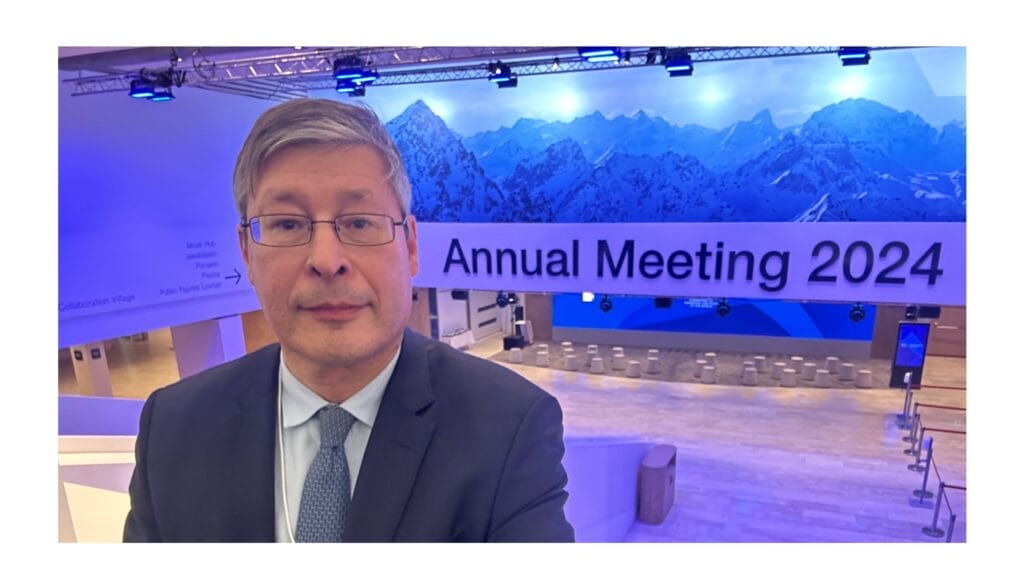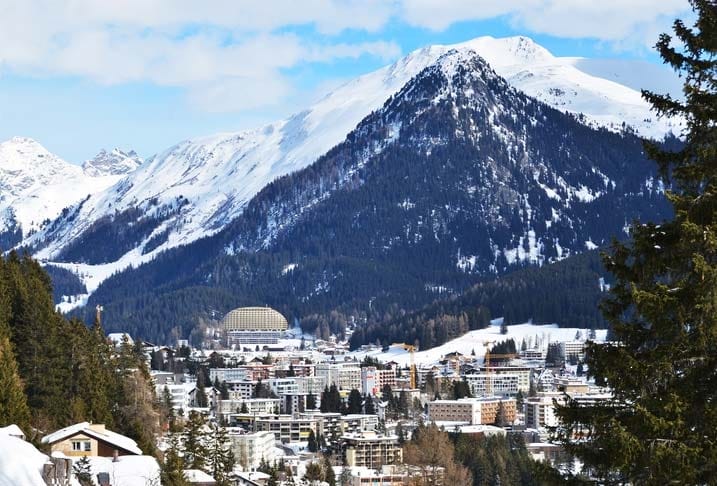M
y journey with the World Economic Forum (WEF) began in the early 1990s, when my then-employer became a WEF member and, a few years later, turned into a “strategic partner” — the highest commitment level for a corporation. Over the years, my experiences at WEF meetings have been extensive and diverse, spanning from Davos to India, Dubai, and Geneva. My close connections with the forum’s top management have nearly made me an insider.
The WEF’s most significant strength lies in its unique ability to convene leaders from diverse sectors — politics, international organizations, business, and, crucially, civil society. This includes religious figures, trade unionists, artists, social entrepreneurs, media leaders, and young people. The 2024 meeting earlier this month saw more than 60 heads of state and government in attendance.
The first experience of a WEF meeting in Davos is invariably awe-inspiring. Within moments, you might find yourself rubbing shoulders with such global figures as Bill Gates, the Mexican Secretary of Finance, or a Nobel laureate. These encounters happen everywhere — in official sessions, cafeterias, shuttle buses, even on the icy streets. Evening receptions hosted by national presidents offer relaxed networking opportunities with key ministers and business figures.

Philippe Monnier WG90 at the World Economic Forum in Davos, Switzerland
Contrary to popular belief, Davos isn’t synonymous with luxury. Accommodations are often rather modest, and slippery roads along with 10-degree temperatures contribute to a unique atmosphere far removed from that of major cities — one often referred to by attendees as the “Davos spirit.” Despite the WEF’s commitment to combating climate change, too many participants unfortunately use private jets, although the organization makes sincere efforts to encourage European attendees to opt for train travel instead.
The Davos meeting is often misconstrued as a gathering at which billionaires conduct covert business deals. However, the WEF’s official mission is “to improve the state of the world,” and I can attest to the passion of participants in this pursuit. The majority of sessions focus on environmental, social, and conflict-prevention issues. This year, artificial intelligence was also a key topic, with discussions centered on its benefits for the general population.
Many attendees also leverage the WEF for business purposes. It’s important to note that the forum is largely funded by private companies, including about 100 strategic partners. Corporate membership is by invitation only and involves a significant financial commitment and year-round engagement in advancing the WEF’s goals. While there are wealthy corporate owners and executives in attendance, a substantial number are non-corporate (and not necessarily well-off) participants.
The effectiveness of the WEF meetings is sometimes questioned. However, thanks to its unrivaled convening power, the forum serves as a potent platform for multi-stakeholder discussions and initiates concrete actions. Apart from organizing meetings, the WEF also undertakes pilot projects and major initiative (e.g. AI regulations and the First Movers Coalition). The Forum also co-publishes actionable content, such as the Global Risk Report. Some meetings are private but many are filmed for the public.
In addition to the more than 200 official sessions, participant countries and companies host exclusive events such as breakfasts, lunches, and nightcaps. For example, former U.S. president Donald Trump W68 once hosted a dinner for about 15 European-based business leaders — regrettably, I wasn’t invited despite being a fellow Whartonite. This year’s forum had at least 60 Wharton alumni in attendance.
That forum’s focus was on “rebuilding trust” in the face of uncertainty. Nearly 3,000 participants from 120 countries discussed a wide range of issues intended to increase resilience and security, reinvigorate economic growth, protect the climate and nature, balance innovation and technology guardrails, and invest in jobs, skills, and health. For instance, in concrete terms, Switzerland committed to launching a peace plan to resolve the Ukraine-Russia conflict. I paid particular attention to the work of the AI Governance Alliance and its calls for inclusive access to advanced artificial intelligence.
Looking ahead to the forum’s future, some observers believe a major challenge for the WEF could be the transition from its founder and executive chairman, 85-year-old Klaus Schwab, to his yet-to-be-named successor. Many insiders, however, are convinced that a professional structure is in place and that such a succession won’t prove an insurmountable challenge.
Philippe D. Monnier WG90 is a Swiss-Mexican entrepreneur and interviewer of business and political leaders. He is the President of the Wharton Alumni Club of Switzerland and serves on the Board of Directors for various organizations, including WISeKey International Holding SA.

























